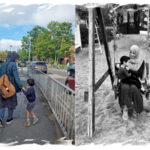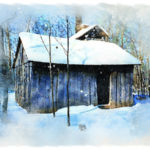I am alone
And you are alone
So why can’t we be alone together?
(Opening lines of the poem ‘Acceptance’ by Nissim Ezekiel)
The Pandemic has not left a single person throughout the world untouched. Quickly, it began to feel surreal… almost like a movie. It was the common thread in conversations among family and friends. For the grieving families of those who succumbed to the devastating illness, it became a stark reality. Feelings of being trapped physically, mentally, and emotionally invaded the human spirit. The virus swept through like a marauding army with hapless victims, penetrating our very souls. Breathing became difficult, literally and metaphorically. Claustrophobia set in. For those on ventilators, no advice on meditation or deep breathing could provide the oxygen necessary to sustain life.
Those granted another day of life turned to art, poetry, home cooking, baking, yoga, meditation, exercise, and other pursuits. Virtual friendships blossomed with the help of social media. Closet cleaning and the home organisation became possible, as time stretched interminably, like a long rubber band about to snap. Initially, having the leisure for the new tasks was a bonus. Later, it sank to the level of humdrum routine. A roller coaster of emotions became a universal experience. The human spirit is resilient. Some dealt with the Pandemic stoically, and others cried out for help. Others buried their pain.
Whether it was people who began working from home, or teachers teaching courses online, parents helping children with the needed technology, everyone faced a new and challenging way of life. My young niece said she was attending ‘Jhoom school’, Zoom, innocently mispronounced, but bringing a lightness to the situation. The number of Zoom calls we participated in, would surprise us. Still, it was a way of staying connected, of staying alive, of enjoying social interaction, even if virtually.
My father’s words became vital to maintaining my personal equilibrium at this time. The message in the opening lines of his poem ‘Acceptance’ held a twofold meaning. I developed an attitude of acceptance.
Acceptance of reality provided a coping mechanism, not in a passive way, or as resignation, but something that brought calmness and peace in lieu of frustration. Being alone, yet together, brought recognition of being part of the universal suffering caused by the Pandemic. His words reminded me of the possibility of solidarity in aloneness which alleviated individual suffering.
I have it on good authority from a cousin, who was in a meeting with Shimon Peres, the ninth President of Israel, that Mr Peres often turned to my father’s poetry for solace in turbulent times. He quoted the words of the opening lines of the ‘Acceptance’ poem in meetings with his Palestinian counterparts in his endless quest for peace and in public events such as welcoming Jewish athletes from around the world to the Maccabiah games. He referred to my father’s words as ‘His words of Wisdom.’
Other words with which my father inspired me became my go-to place in the boredom and loneliness that often set in during the Pandemic. His words, ‘you can’t control the circumstances, but you can always control your reaction to them’. The words of grit and single-mindedness I love best which were found on a black and white poster on his writing desk. ‘According to the law of aerodynamics the bumblebee should not be able to fly, but the bumblebee does not know this, so it goes ahead and flies anyway’. ‘Happiness is a choice, was a constant refrain. It endorsed my choice to be happy despite the difficulties the Pandemic brought with it, turning adversity to my advantage. I prayed to inherit my father’s fortitude and resilience. He taught me so much more that will remain in my well of rich reserves to pull out in times of stress.
Mother was practical by nature. Her love of proverbs for every situation helped me overcome many challenges growing up. If I failed a math test, it was ‘Don’t cry over spilt milk’. It meant what’s done is done and cannot be undone, move forward and don’t wallow in failure. The Pandemic was a fact and was here to stay, for who knows how long. Her words served as a reminder to stop agonising over the new reality and keep persevering. There was the early morning injunction to go out into the garden and breathe the ozone. I was blessed to live in a ground floor flat with a large garden which the landlord maintained meticulously. Both my parents gave importance to fresh air and light. Here too my home has a garden and sitting outside with the first-morning cup of chai with her words echoing in my ears, takes me back to my childhood, setting the mood and tone for the day. I drink in the ozone and think of those trapped in flats and apartments who cannot make such choices. When there is a heavy smell of smoke in the air, all the windows in the house must remain closed, and I am in the shoes of those people. Empathy and compassion were instilled in me by both parents from a very early age.
‘Waste not, want not’ was another, which she had a distinctive way of reciting. The teaching came in handy when I had to, like others, make use of all the resources available to counteract the shortages that came with the Pandemic. Using whatever ingredients there were in the fridge and stretching it to make simple meals, was an exercise in discipline and mindful living, qualities that were characteristic of my mother. In times of job loss, maintaining a strict budget became necessary, something she did all her life. ‘A penny saved is a penny earned’, she would say.
Both parents emphasised contentment. When the scantily clad construction workers took their lunch break, sitting in our home garden, and drinking rice water, my mother pointed out their cheerfulness despite having such a sparse meal as an example of being content. I have never forgotten their smiles or their good cheer.
If they can laugh through their scarcity, we have nothing to complain about.



